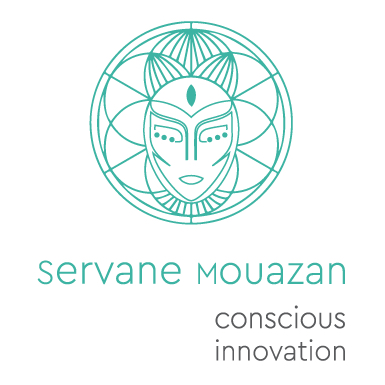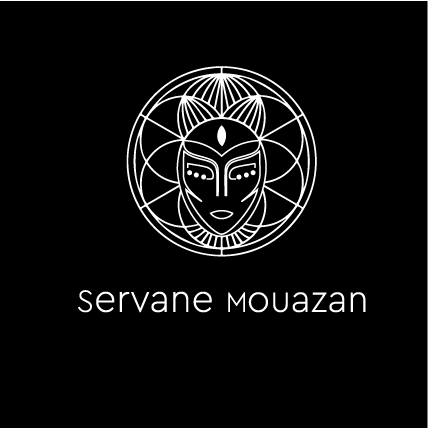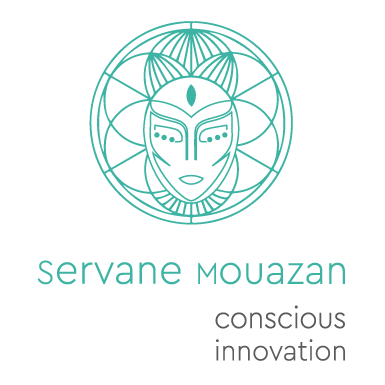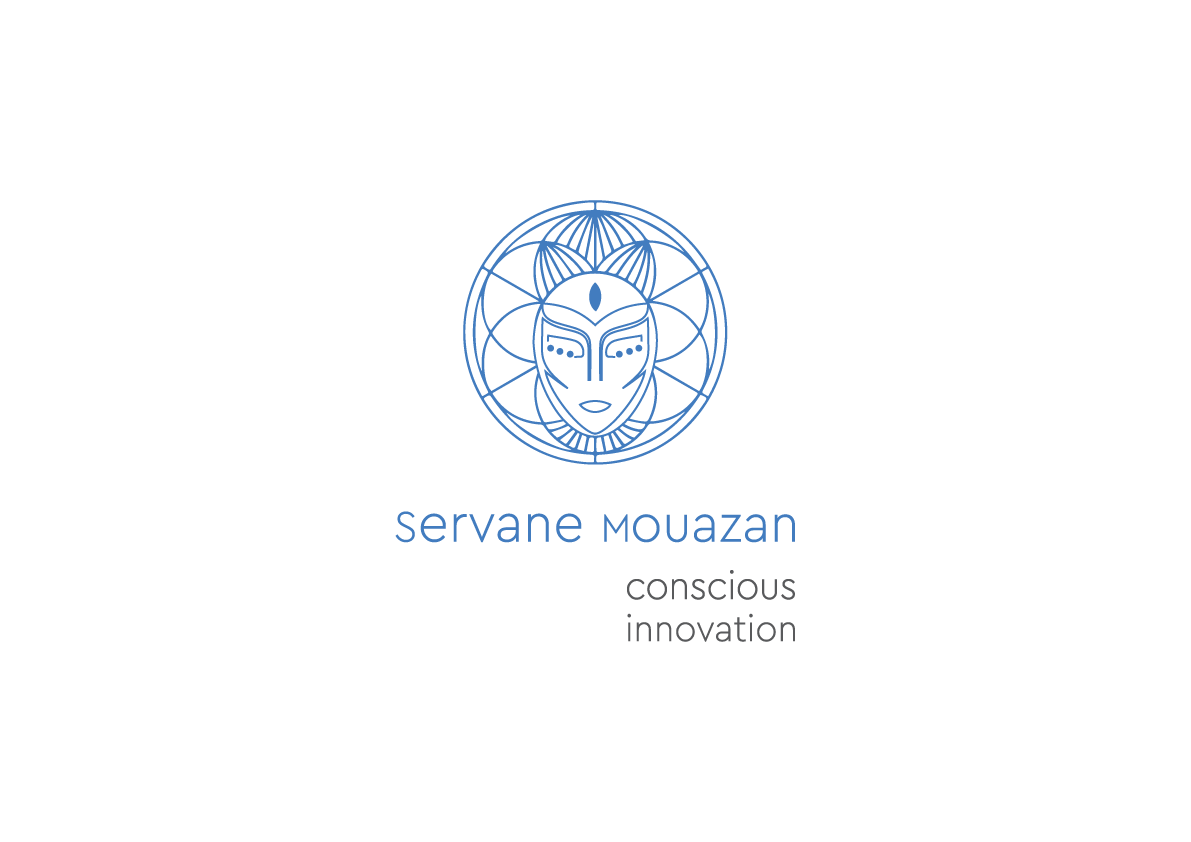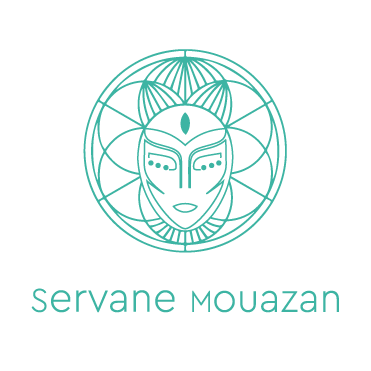Building a Financially Accessible World with Tara Sabre Collier
In this episode of Be & Think in the House of Trust I am speaking with Tara Sabre Collier, an angel and impact investor. She is a social entrepreneur and strategist with over 15 years of experience supporting philanthropy, commercial funds and social enterprises across Africa, Asia, and the Americas.
We talk about the blind spots in finance causing discriminatory behaviour from an industry led by white men, and how to adopt an SDG investment strategy that champions broad positive change.
Tara is a thought leader in the industry and offers truly valuable insights on how to make decisions through a gender lens, improve the financial ecosystem, and become a more conscious investor.
Highlights from this episode:
(01:26) Finance is the biggest barrier
(05:12) The gaps in finance are intentional
(10:32) Impact capital, emerging markets and SMEs
(13:20) Why fight for seats when we can build a bigger table?
(17:07) The gender lens
Useful Links:
Tara Sabre-Collier https://www.linkedin.com/in/tarasabre/
Boston Ujima Project https://www.ujimaboston.com/
kheprw institute https://kheprw.org/
Adasina https://adasina.com/
SDGs (Sustainable Development Goals) https://sdgs.un.org/goals
{{footer}}
Transcript
Welcome to the House of Trust. My name is Sivan Moza, and every week I'm sharing a moment with an inspiring leader who loves to invest in social and environmental change through the work they help us tell one another and the planet. You matter. Together we take the time to think about thorny challenges, thorny issues, but also behaviors and conditions that help you trust, bond and collaborate, fulfill your mission as an impact investor and ignite great positive impact.
My guest today is Tara Sare, k. She's an angel, she's an impact investor. She's a social entrepreneur and strategist with over 15 years of experience supporting philanthropy and commercial funds and social enterprises across Africa, Asia, and the Americas. And Tara, you also a sustainable finance advisor to GOs and development finance institutions, and you are visiting fellow at side business school at Oxford University, and you focus on impact investment.
So thank you so much, Tara, for taking a moment to reflect with me today on your thoughts and where your inspiration comes from. And I wonder where does this fascination for impact finance and social entrepreneurship come from?
It goes way back. Uh, so when I started my career, I was more on the non-governmental side, focusing on poverty alleviation and emerging markets and developing economies. And a lot of that came from my background doing community development in my own community in the us, which is something that my parents have been doing and probably generations before then had been doing.
Uh, when I started to travel, I realized that the level of poverty. People, especially in the African diaspora globally, were facing was so much greater than the levels we knew in the us. I started to get involved in that side and I did a lot of entrepreneurial development and private sector development programs like incubating startups, women-led startups, indigenous startups, all kinds of startups in Africa and Latin America.
But after doing that for years and years, working with more than a thousand startups, I kept saying finance being the biggest barrier, and a lot of them had ideas for things that could RA radically transform things in their community, address some of the biggest barriers they faced in their community, whether for education or for help and finance was often the missing link.
And that was more than 15 years ago. And that was what pivoted me into impact finance.
Wonderful. So we, we hear, um, so that was 15 years ago and we still hear that finance is a big career. What, what's going on, Tara, in your sense? What's in the way?
Um, I mean, Part of this is a broader financial inclusion issue, and that's particularly true, um, in terms of geographic coverage, and that's also true in regards to under-resourced communities.
Um, if you look at the roots of how finance was started, a lot of the roots of it had more to do with circulating capital among fairly resourced groups to each. And the idea of widespread financial inclusion was not the idea of the sector. Um, so this is just part of the evolution of the sector that we can reach greater, almost universal coverage.
And then there's part of the engineering and design that had blind spots from the beginning. And I say that because if you look at the design of the financial sector, look at the design of capital markets. Many people don't know that the bond markets in the US and many other capital markets, at least in the US potentially Europe, uh, have extensive links to the slave trade.
So who created those markets? Who created the structures that, upon which, the pillars upon which the key principles of underwriting are based, and how did they benefit from those and whose voice were part, whose voices were part of that design and whose voices were not? . So you can see even from the outset, the way all of this was designed, there were always voices missing in the room about how everything, all of these different financial products were designed.
Uh, so it's not just an issue of widening coverage, taking what's already there and rolling it out globally. Mm-hmm. , it's also part of looking at what voices weren't included and how can we have new instruments. That actually not only integrate understanding of inclusivity, but integrate other principles such as, you know, better awareness of risks such as better awareness of systemic risk, such as better awareness of the, uh, long term impact of inequality in ways that could be factored into how we deploy finance.
Mm. And what, what more can we share about blind spots that are still pretty much. Well there we don't see them. They're blind. We're blind. But more, can we say ?
I mean, so going back to the issue of blind spots, do I think that the gaps and finance are always intentional? So we look at the fact that, you know, more than 95% of global asset management is led by white.
Do I think that that was also intentional? Do I think the fact that that's trickled down to when you see, you know, less than 10% of VC going to women and that this ranges by region? Of course. You know, in some, in some regions it's more, I think I was just reading a stat from the Middle East where it's only 1%, but we know.
and when it term, when it comes to LP allocation to GPS and then GP allocations to finders, the absence of women and the absence of traditionally under-resourced groups continues to ripple out from the top of the value chain. Mm-hmm. and is sometimes that cause by not bias, not. Discrimination, but simply blind spots.
Well, you know, in the US I read a really interesting stats and US is a very racialized society, so it doesn't apply to everywhere. Mm-hmm. . But I read a stat that like, um, It was something along the lines of more than 70% of white VCs don't have, uh, black first degree connections. I, forgive me for this dot, I can't, I can't remember the exact numbers.
Mm-hmm. . But it's about the fact that even if you want to be inclusive, if you're never, if your network is simply not representative, it will be a blind spot in terms of ideas and innovation that you'll miss. But also in terms of design. So in the gender Lynn space, one of the things that we're starting to think through is, Women social entrepreneurs sometimes have different visions for how they grow their business, which may not fit for the kinds of products that were engineered based on VC models within impact investing, especially if the growth of their business is not, um, is not predicated just on getting to next growth.
Is more predicated on being financially sustainable. Yes, having good financial performance, but achieving that sdg. So what are the kinds of financial products and whether that's like the tenors grace period, you know, other aspects of design impact, link pricing, et cetera, that we're not seeing because we're using what was already there and missing blind spots in terms of specific financial products.
That specific types of entrepreneurs, which have never been the focus, need or want. Mm.
So it reminds me of that saying we're trying to do impact with, uh, with instruments that are not designed for, for it. It's, it's like going to, I can't remember that saying, but there, there's a saying that goes, um, trying to go to the, um, the, the, the, the craft store to find a pint of milk or something like that.
And it just doesn't, it feels like things are not meeting really well, are they?
It's interesting because, um, we're using impact finance. To achieve the STGs, which means we're using finance, achieve the STGs, and yet one of the biggest STGs is STG 10 Equality, and that SEG is correlated. with most of the other STGs.
So there's been analysis by several universities about correlations across STGs. Yeah. Some STGs automatically accelerate STGs and some STGs actually take away from other STGs. Mm-hmm. . So for example, if you're pursuing, uh, poverty alleviation, depending on the path. To which through which you pursue it, you could actually accelerate climate change, for example.
But inequality is one of the STGs with the strongest amounts of synergy. Um, with all of the other STGs solving inequality accelerates most other STGs, and yet the financial sector. And this is corroborated by research from our own financial conduct authority here in the uk. Mm-hmm. , um, and by the OAC d is a sector that is correlated with rising inequality past a certain.
Past a certain point the size of the financial sector. Particularly private capital markets is correlated with greater rates of inequality. So to assume that, well, we can grow impact finance and then we'll solve all of these STGs, maybe a flawed assumption unless we are trying to find ways to do this significantly differently than the way conventional finance has done.
And yes, I agree with you. I agree with your assertion that we may not have adapted this tool enough yet.
Mm-hmm. , it sounds like a perfect instrument for madness, for going in circles. So, Terry, you wrote recently, uh, about an an event. You took part and you say it's about how impact investment can be better channeled to where it is needed the most in ways that further.
Economic mobility for women and traditionally under resourced groups. And that's the interesting bit I, I read for sure. My grandmothers, my mother and my daughters will understand my wanting to have a voice in this discussion. So, do you know I'm a big fan of York, the singer, the artists, and, and I could find this much vibe and legacy, desire for legacy in what you, what you wrote.
What do you think, what more can you tell us about.
Well, it's, uh, it's something that I think about a lot because. . A lot of my work around impact capital, whether and developed markets are emerging markets there is around SMEs. Mm-hmm. and my mom is a business, is a small business owner. My dad was a small business owner, so this is, and they were both social entrepreneurs.
Um, you know, my mom's, uh, started basically providing healthcare and under-resourced communities at home in the us mm-hmm. . Um, so that's close to my heart, but I also look at the. Opportunities that I get to make sure that opportunities are expanded for those like me, especially for those who came before me that never got these opportunities.
Mm-hmm. . Um, so, you know, my dad's mother was a domestic, uh, she cleaned houses for people. Mm-hmm. , uh, mostly white people in the South, Umhmm, , and. Ever get an opportunity, despite her intelligence to weigh in on things that could have broadened economic opportunity for the entire community. Uh, so for me to be able to weigh in and make sure that we're not just giving more seats at the table, we're building a much, much bigger table, is something that she would be very proud to see.
And I look at the ways. You know, her and even on my mother's side of the family, like so much of our family has been fodder for the financial system, whether it's, you know, the indigenous side of my family we're basically, all of our land was taken. Mm-hmm. , which then feeds into a massive accumulation of the wealth, which we now see in the US with our financial markets, um, which are some of the biggest invest in the world.
That wealth was never circula. Back to our community. Mm-hmm. and the circulation and the lack of circulation of wealth continues to affect our community, the African American community, the indigenous American community. Um, so how are ways that. I can help, right? These historical wrongs, not just in terms of finding way more ways to solve some of the vulnerabilities, the economic vulnerabilities in our community, but making finance better.
Because I do believe that people are inherently good, and I do believe that despite all of its gaps, the financial system has this massive potential to. Opportunity and upliftment. Um, and the more there's people that weren't traditionally not given seats at the table, the more we'll see new ways we'll shed light on all of these old blind spots.
And we'll innovate it so that it can, it can live up to its potential. Hmm. So people
are inherited. Good. I do believe that we need to, we need to have more people around that table. It's not about having a battle of seats, it's also about big building, bigger tables. I'm just trying to condensate to this.
So let's talk about trust. We are in the house of trust. After all, how can your future granddaughters if you happen to have future granddaughters? If I'm so lucky, , and I'm sure if they're grandchildren, uh, you'll be lucky, but grand, grand, grand, uh, sons. Um, how, how can you, how can you stay on, on track? How can you trust, how can your future granddaughters trust you?
You'll stay on track. Mm-hmm. , especially when the, the times of turbulence like these ones at the moment,
all we can do is our best. I mean, look, even in trying to build impact investment, there's been errors already that have probably worsened inequality. Mm-hmm. by people who are well intentioned. So then all we can do in response to that is now broaden our vision so that we can be more circumspect for, um, more risk mitigation and more harm reduction in the future.
Mm-hmm. , I mean, we're not gonna know everything that's going to. , and obviously we haven't gotten it right yet, but all we can do is continue to try. This is a marathon, not a sprint. Mm-hmm.
A marathon. So, you know, Mohamed Uni says, um, if you want to do something, you have to imagine it. If you don't imagine it, it will never happen.
Mm-hmm. , how can you encourage your, your peers, you know, in finance, impact finance, development, finance to, to imagine, to continue imagining, to be bold. T being optimistic and connected to mission.
You know, the other day, I was in a meeting with a colleague who's like 60 and he was saying that, you know, 20, 30 years ago when he was getting started at one of these big investment banks and talking to family offices about philanthropy.
Do you think common thinking was, you know, you have business which is doing what needs to be done for business and you have doing. The fact that they could ever come together was like an anomaly and ludicrous idea. And I laughed because I do remember when that was the sentiment. And now it seems so farfetched, far so farfetched today, kind of like, um, when I was a kid and they, people talked about having a black president.
And we would laugh because that seemed like it would never happen. Or, you know, the legalization of marijuana, like that just seems like sci-fi, like futuristic nonsense. Like that's never gonna happen. So the idea of, of doing business and doing good, being. Amalgamated or integrated seemed farfetched and now it's quite normal.
Climate finance seemed like some fringe, nutty granola thing. , and now it's, and now it's scaling. I mean, we remember that, right? We're old enough to remember when climate finance was this. French thing that, you know, people who went to marches would talk about, uh, not something that you'll read about in the Financial Times.
I don't know.
Cause I, I'm French and I, I, I just had a, some french bread for, for breakfast, so I'm laughing at the granola thing. So I imagine climate fines was also even, even more far fetched.
Yeah. Oh, I said French, like, uh, sideline, not French like the country. Apologies. , I mean, we life, we're life, we're life.
I don't associate climate finance, especially with France. I mean, I'm sure they're involved. That's, that's
for another episode, .
Um, anyway, even gender lens investing in our, you know, in a decade it's gone from you. A hundred million in 2014. Mm-hmm. , and now it's, you know, manifold that, so these ideas that seem, you know, like.
Fringe now can become quite commonplace today. So just like ESG scaled, maybe systems, uh, systems lens investing will also scale. Maybe racial justice investing will also scale. Maybe social justice investing will also scale. Mm-hmm. . Um, and what's really exciting is the design of new instruments. Mm-hmm. . Um, and what's really exciting.
The way that we can use blended finance to make some of this stuff happen, which blended finance has been around for decades. But now we can channel it more into some of the innovations. Um, and as the sector gets more academic, meat and robustness and evidence seems to open a willingness from donors and philanthropic funders to be open to some of the experimentation that's required.
To create the, those new finance for instruments and to do this in ways that are not just actually replicating the conventional financial system. So we know that there's those who are impact investors, who really what they are. It's like really you're just a bank. You call yourself an impact investor, but you're risk appetite the way you invest.
You're just a bank. Mm-hmm. ? Um, no. With blended finance, we're opening up new ways to do things more and more,
and I like this. There's some. There is some, there is some movement. Uh, I can sense some movement happening here and uh, and I can sense as well a glimpse of joy and hope, uh, in going into the right direction.
It's a long way, but there's some creativity involved, imagination involved. Some people be able to sit at the table with the Post-Its and the crafts and the Lego . Just imagine these new instruments to make things happen. I wonder, Tara, I wonder. If is there a question that you want to ask yourself and that will help you, you know, keep on track.
Uh, as you create these new
instruments yourselves, I just wanted to call out some of these, um, just so we're getting even like a bit more technical and granular. Mm-hmm. . Uh, so when I'm talking about the, um, experimentation and the innovation, I'm talking about things like. Um, participatory grant making.
I'm talking about, you know, impacts investing that monetizes or integrates, uh, within the investment process, knowledge, equity, and lived experience, and some interesting examples that you may have come across or if you haven't, you might enjoy telling listeners about and, and being sure they can look up, you know, at.
Which I'm sure you've come across the social justice etf. I think that's so exciting. Not only is ex exciting because it's, um, holding really big companies accountable and in some ways driving impact through the biggest companies. And we often focus on the. Private markets and we forget about, uh, the fact that holding the biggest companies accountable can be a massive lever for impact, but they also integrate the engagement with communities into the investment process and the design process.
I'm talking about, uh, the Ujima Institute in Boston and Kera Institute in Indiana. So these are where under-resourced communities come together to create their own bonds and their own mechanisms for, uh, financing SMEs and financing impact, you know, outside of the conventional system, which I think is an important narrative that needs to be held up.
Mm-hmm. , uh, while we wait for the impact finance ecosystem to get. And, and better serve us. So I wanted to call out those examples as well so that, um, more and more people continue to know about them and continue to think about both. Um, the integration of lived experience and knowledge equity, the importance of public markets as part of the impact puzzle.
Um, the importance of, um, self financing from within the community, not just relying on donors. And of course, I can't, I'd be remiss to not mention, um, Employee ownership. Mm-hmm. , which is another important, um, leg or pillar that we tend to be overlooking employee ownership within, um, impact investing. So I wanted to call out some of these examples so it's not just high level or philosophical about, you know, innovation, but, so people can look up some of these examples.
I love this. Yeah. And get inspired or maybe copy.
Oh, wonderful. More copying. More copying and, and yeah, and, and, um, channeling and crafting and, um, make it, uh, appropriate for the community you are in with its, uh, specifics. Uh, and this, uh, and, and its nuance. I love this. What can we find more about you,
Tara?
Unfortunately, I don't, yeah, I don't have that much. Um, I actually am about to take my website offline for construction. So the, the best place, the best place to find more about me is LinkedIn, actually. Okay. That's where I'm most active on social media. It's Terra Sabri, Collier, t a r a. Wonderful. Thank
you.
We'll put this in the notes. Thank you so much for, for your presence and your thinking and you sharing these granular examples as well, so that people can really, really look that up and uh, and get more knowledgeable around the avenues of concrete avenues that are being created and at the moment to make impact investment bit different, bit more relevant.
Thank you so much,
Darren. Thank you.
So thank you all for listening to that new Thinking conversation in the House of Trust with Tara. Subscribe now to this podcast on your favorite platform to make sure you don't miss the next episode, because next time our guest will be Chantel Wilkins, a philanthropy investor who will share how to move from control to grace and help investee, but also our impact.
Peers to be even more relevant and for more insights, events and resources to help you gain focus and clarity as you invest in social change. Head to my website, south van moza dot go UK and subscribe to my regular conscious innovation updates. I look forward to thinking together again with you in the House of Trust.
Goodbye.
